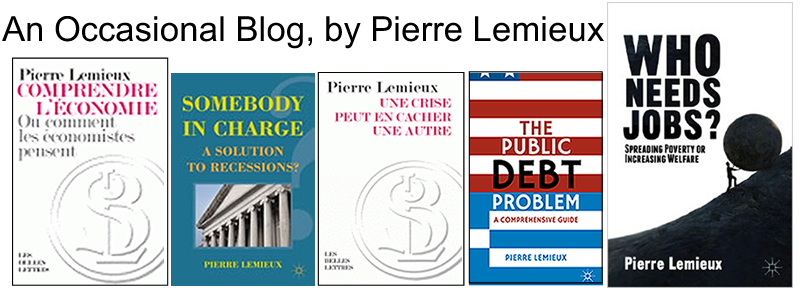As the number of checkpoints and searches between point A and point B approaches infinity, the probability that a terrorist or common criminal will pass through the net approaches zero. But, at the same time, the probability that a government agent will commit a crime approaches one.
Monthly Archives: December 2016
The Will of the People
Perhaps one can define “the will of the people” as 51% or 48% of a vote, or 35% of the electors, but it is only a definition. Or else it is the conclusion of a demanding contractarian theory.
Reminder on Adam Smith and Businessmen
“The interest of the dealers, however, in any particular branch of trade or manufactures, is always in some respects different from, and even opposite to, that of the public. To widen the market and to narrow the competition, is always the interest of the dealers. To widen the market may frequently be agreeable enough to the interest of the public; but to narrow the competition must always be against it, and can serve only to enable the dealers, by raising their profits above what they naturally would be, to levy, for their own benefit, an absurd tax upon the rest of their fellow-citizens. The proposal of any new law or regulation of commerce which comes from this order, ought always to be listened to with great precaution, and ought never to be adopted till after having been long and carefully examined, not only with the most scrupulous, but with the most suspicious attention. It comes from an order of men, whose interest is never exactly the same with that of the public, who have generally an interest to deceive and even to oppress the public, and who accordingly have, upon many occasions, both deceived and oppressed it.”
— Adam Smith, The Wealth of Nations (1776).
James Mill’s 1808 Commerce Defended and Today’s Protectionism
James Mill (1773–1836) was a Scottish economist, philosopher, and journalist. He was the father of an even more famous figure of the 19th century, economist and philosopher John Stuart Mill. Like other classical economists, James was a defender of free trade. His 1808 pamphlet Commerce Defended answers many of today’s arguments for protectionism.
Continue reading
The Wealth of Nations and Free Trade
Adam Smith’s famous book The Wealth of Nations (1776) developed economic and moral arguments against “the mercantile system” or protectionism. The relevant chapters are among the best of the book and there is much to be learned from them.
Continue reading
Open for Business, Close to Consumer Preferences
In a couple of weekend tweets, Donald Trump warned American companies against shipping goods to America from foreign countries: “Please be forewarned prior to making a very expensive mistake!” “THE UNITED STATES,” he added in bold letters and with his usual inconsistency, “IS OPEN FOR BUSINESS.” “Open for business” apparently means that the government is open to meddling with businesses.
Continue reading
Reflections on Protectionism In View of Taussig’s The Tariff History of the United States
One can exaggerate the degree of liberty in America before the 20th-century sprint of interventionism. (I have sinned myself.) One form of widespread government intervention in 19th-century America was protectionism –- the imposition of customs tariffs to limit imports. In his 1914 The Tariff History of the United States, F. W. Taussig follows the evolution of American protectionism from the early Republic, and especially the first really protectionist tariff act in 1808, up to 1913.
Continue reading
